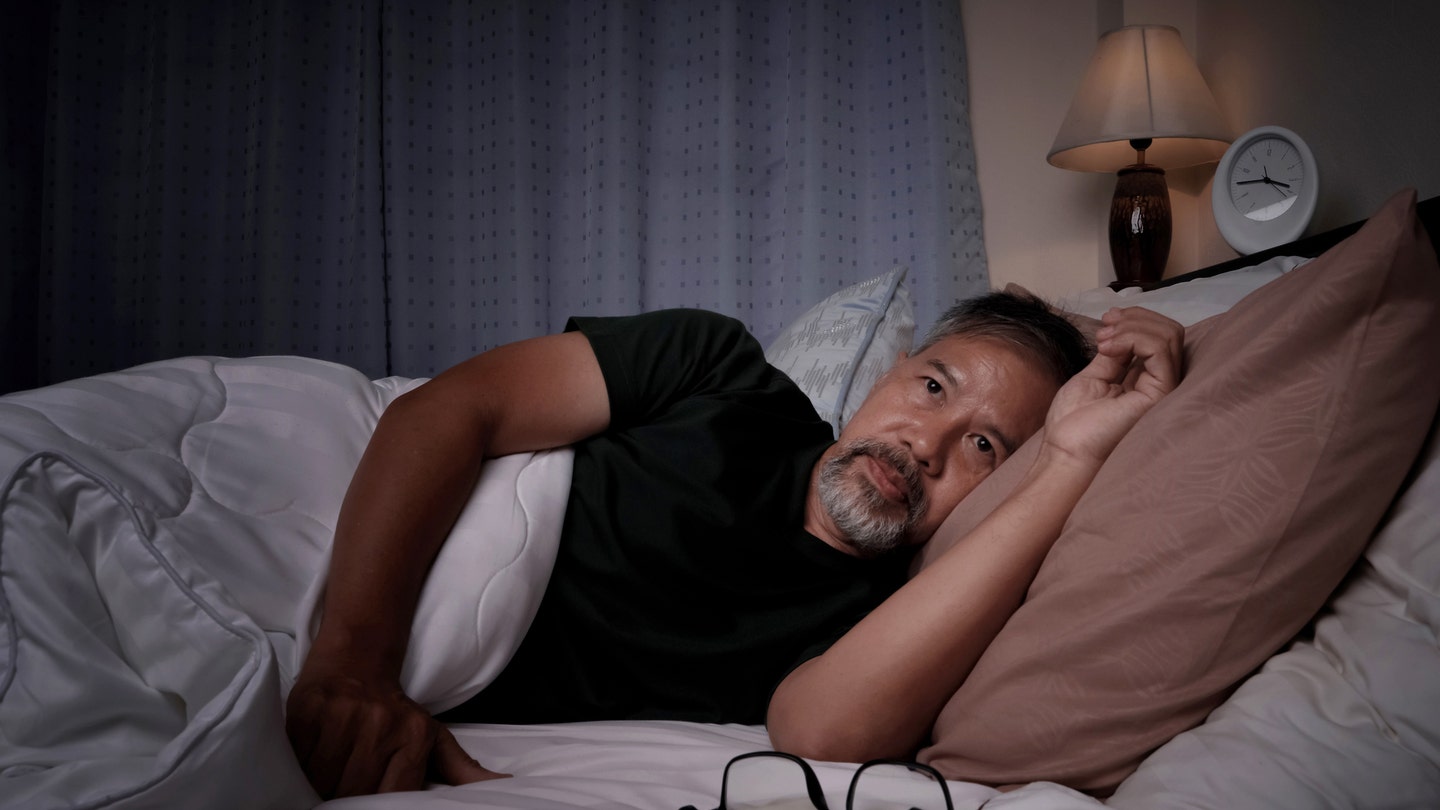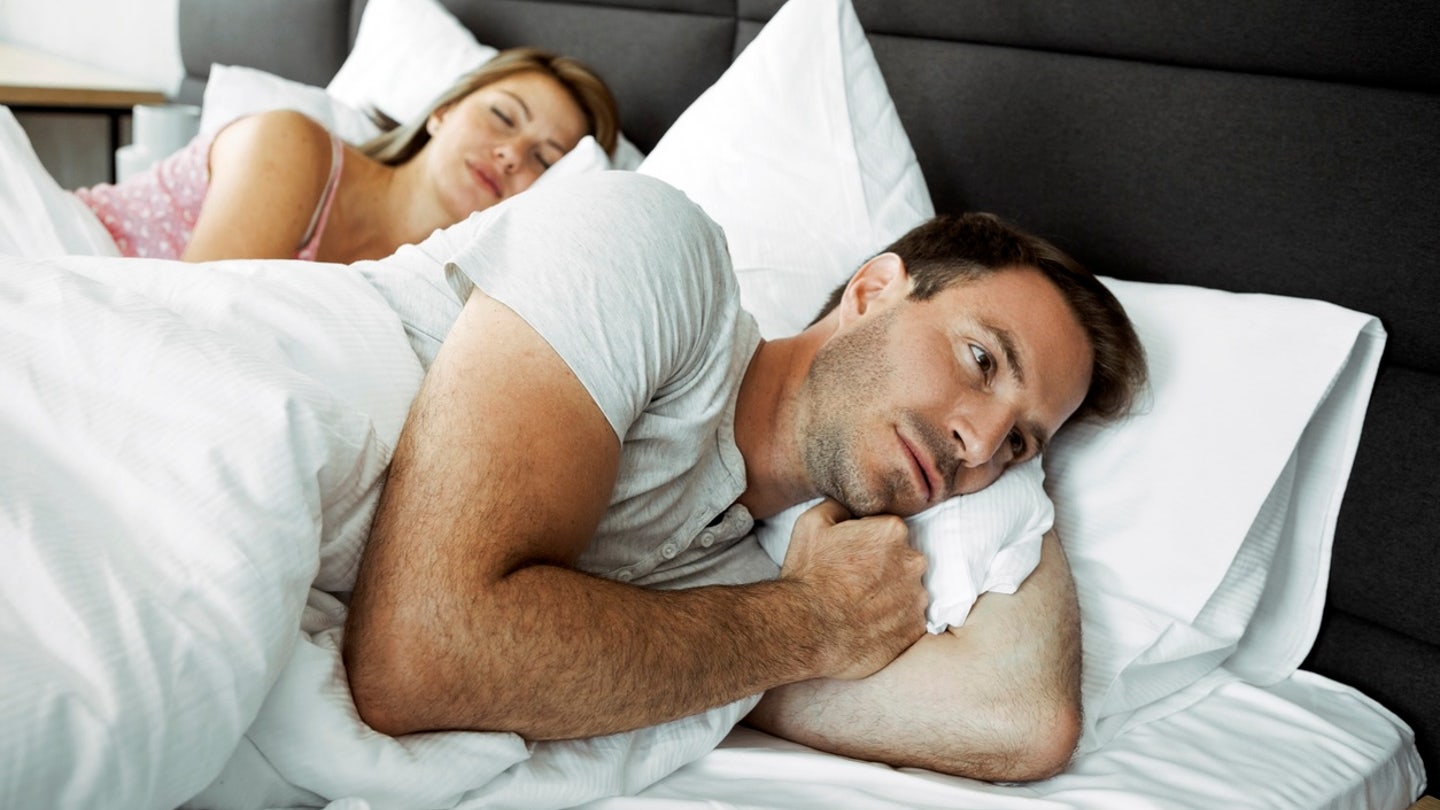Even when following the recommended sleep hygiene habits — like cutting off caffeine mid-day, stashing your devices an hour before bed, and winding down your day with light music or reading — racing thoughts could still interrupt your nightly rest.
If your sleep routine isn’t a dream, you’re not alone — one in three American adults don’t regularly get the recommended amount of uninterrupted slumber, according to the U.S. Centers for Disease Control and Prevention (CDC).
Fox News Digital asked a psychiatrist for common reasons and his top tips to achieve a quiet mind that’s conducive to rest.
DO WOMEN NEED MORE SLEEP THAN MEN? HERE’S WHAT EXPERTS THINK
Reasons for racing thoughts
While causes can vary, there are some common triggers for racing thoughts at night, according to Ramaswamy Viswanathan, MD, president of the American Psychiatric Association, who is based in Brooklyn, New York.
One in three American adults don’t regularly get the recommended amount of uninterrupted sleep, according to the CDC. (iStock)
Stress and anxiety are the primary culprits.
“Anxiety about the day ahead can also cause it,” the doctor told Fox News Digital. “Mental health conditions such as anxiety disorders and bipolar disorder also can lead to racing thoughts.”
Those thoughts tend to be more active at night, when there aren’t other activities occupying the mind.
‘SLEEP DIVORCE’ ON VACATION: TRAVEL TREND HAS COUPLES ‘BREAKING UP’ AT BEDTIME
“At night, when there are fewer distractions, it’s easier to ruminate over the day we just had and worries such as troubles at work, family or financial concerns,” said Viswanathan, who is also professor and interim chair of the Department of Psychiatry and Behavioral Sciences at Downstate Health Sciences University in Brooklyn.
Consuming stimulants such as caffeine or taking certain medications close to bedtime can also interfere with relaxation and excessive mental activity, he noted.
How do racing thoughts impair sleep?
Racing thoughts lead to a heightened state of arousal, which makes it difficult to relax and transition into sleep, the doctor said.
And when you finally do fall asleep, an anxious mind could interrupt that sleep as the night progresses.

Stress and anxiety are the primary culprits of racing thoughts at night, experts say. (iStock)
“Many people also resume worrying when they wake up in the middle of the night, and this interferes with falling back asleep,” Viswanathan noted.
Although it’s normal to have brief periods of awakening during the night, most people fall back to sleep quickly.
‘WHY DO I HAVE RESTLESS LEGS AT NIGHT?’: ASK A DOCTOR
Those who are experiencing stress, anxiety and worry, however, aren’t able to drift back as easily.
“Since there is physiologic arousal with racing thoughts, that arousal does not readily subside when one falls asleep, and this can interfere with deep, restorative sleep,” Viswanathan told Fox News Digital.
This can be compounded as people then start to worry about their inability to fall asleep, which makes it even more difficult to drift off.
Effects of sleep deprivation
Inadequate or poor-quality sleep can have serious negative effects on the mind and body, including decreased brain function and difficulty making decisions, solving problems and regulating emotions, Viswanathan told Fox News Digital.
“It causes headaches, irritability and fatigue, and reduces attention and functional efficiency,” he said. “It also contributes to traffic accidents, work mistakes and relationship impairment.”

Fatigue, headaches and irritability are among the common effects of insufficient or poor-quality sleep, according to experts. (iStock)
Long-term health can also be compromised.
“Sleep deprivation can suppress immune function, make one more susceptible to infections, and cause unhealthy eating and weight gain,” Viswanathan warned.
‘HOW MUCH SLEEP IS TOO MUCH?’: ASK A DOCTOR
It can also increase the risk of developing chronic health problems like heart disease, high blood pressure, diabetes and stroke, and can also also shorten life span, he added.
Strategies to silence racing thoughts
Taking a proactive approach is the best way to tackle chronic sleep troubles, according to Viswanathan.
“Addressing sleep issues early on and seeking professional help when needed is important to prevent immediate and long-term consequences,” he said.

Sleep deprivation can increase the risk of developing chronic health problems like heart disease, high blood pressure, diabetes and stroke, and can also also shorten life span. (iStock)
Below are some actionable steps to help keep nighttime thoughts under control.
1. Establish a bedtime routine
Sticking to a regular nighttime routine with a consistent bedtime and awakening time is “very important,” Viswanathan advised.
“Sleep deprivation can suppress immune function, make one more susceptible to infections, and cause unhealthy eating and weight gain.”
2. Be careful with late drinking and eating
Abstain from caffeinated beverages, alcohol or heavy food too close to bedtime, the doctor recommended.
3. Refrain from device use close to bedtime
Stop using smartphone displays, television screens and computers an hour before bed, Viswanathan suggested.

Abstain from caffeinated beverages, alcohol or heavy food too close to bedtime, one doctor recommended. (iStock)
“The blue light emitted from these devices interferes with the circadian rhythm,” he said.
Instead, the doctor suggests listening to light music, reading a book, or using relaxation techniques such as progressive muscle relaxation, deep breathing and meditation.
CLICK HERE TO GET THE FOX NEWS APP
4. Try a warm bath
Taking a warm bath about three hours before turning in may help calm the mind — but Viswanathan cautioned that it shouldn’t be too close to bedtime.
5. Create an environment conducive to sleep
For optimal sleep, the bedroom should be quiet, dark and cool (around 68 degrees Fahrenheit), with comfortable bedding, the doctor recommended.
CLICK HERE TO SIGN UP FOR OUR HEALTH NEWSLETTER
Consider using motion-activated night lights to prevent falls in the event that you need to get up in the middle of the night.
6. Schedule a time to worry
If these techniques alone are not sufficient to reduce racing thoughts, Viswanathan suggests scheduling a “worry time,” designating a specific window of time to think about your concerns and identifying a path to possible solutions.

Writing down your worries and anxieties can help prevent sleep-interrupting thoughts. (iStock)
“This reassures you that you will address your worries, but keeps them from spilling over into your bedtime,” the doctor said.
7. Write down your concerns
Consider keeping a notebook next to your bed so you can jot down your worries as they occur and tell yourself you will act on them during the specified worry period the next day, offered Viswanathan.
8. Know when to seek help
If these self-help techniques do not work, it may be wise to seek help from a mental health professional.
For more Health articles, visit www.foxnews.com/health
“This is especially important if you are suffering from a mental health disorder,” emphasized Viswanathan.
The professional will perform assessments to identify any sleep disorders and recommend treatment, which may include cognitive-behavior therapy, other psychotherapies or medications.
